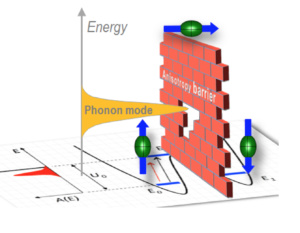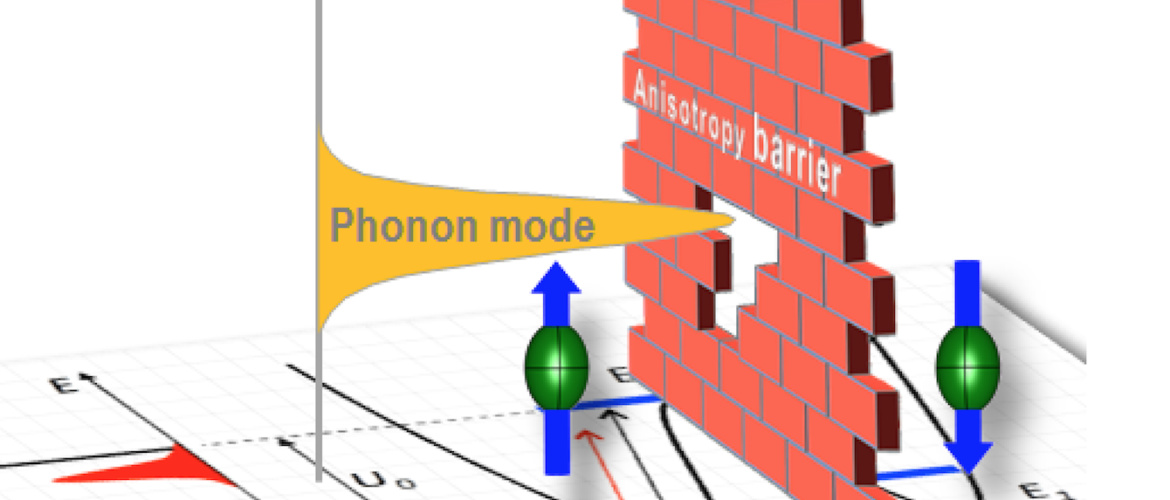Molecular magnets are tiny molecules, often comprising only a handful of atoms, which display the same properties of conventional magnets such as Iron. This fascinating class of materials has the prospect of becoming the platform for many technology applications. For instance molecular magnets can be used as media in hard-disk drives, with the potential of increasing the disks capacity up to a thousand times (a standard 3.5’ hard-disk will store more than 1,000,000 Gbyte of data), or as bits in quantum computers.

The challenge with molecular magnets remain in making them operating at room temperature. In fact, when a magnet is small its magnetic properties degrade rapidly with temperature. At present an hypothetical hard-disk made of magnetic molecules will loose all data unless cooled down to about -200 C. Over the years researchers have been tried very hard to design new molecules operating at room temperature, mostly focusing the attention at their magnetic properties. The progress, however, has been slow.
In recent paper published in Nature Communication the Dublin team headed by Prof. Sanvito at CRANN, the School of Physics and AMBER, all at Trinity College, and the group of Roberta Sessoli at University of Firenze, Italy, have discovered that a drastic improvement in the high-temperature properties of magnetic magnets can be achieved by engineering the molecules to be as rigid as possible. This discovery opens now new avenues for designing high-performance molecular magnets, a task already on-going in the lab of Sessoli.
The original paper can be find at:
See also some press releases:
The Journal.ie
Dublin Live
Wall Street Pit
NextBigFuture.com
RTE News
Silicon Republic
CRANN
Trinity College
Trinity News
University of Firenze

